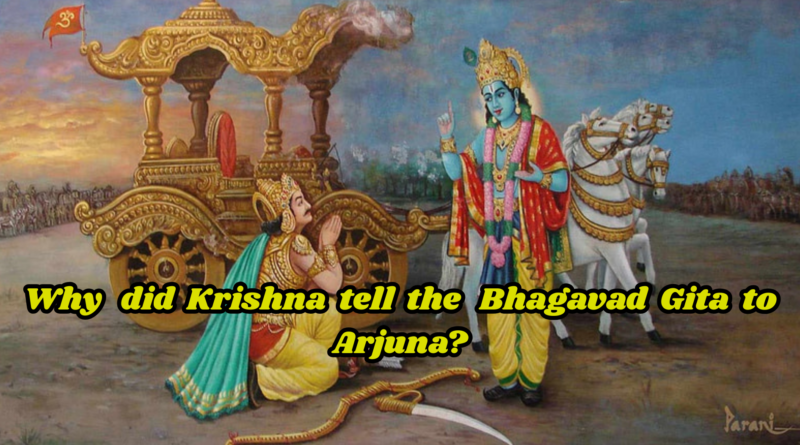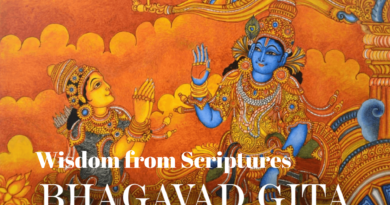Why did Krishna tell the Bhagavad Gita to Arjuna?
Lord Krishna narrated the Bhagavad Gita to Arjuna on the battlefield of Kurukshetra at a time of intense moral and emotional crisis. Arjuna, one of the Pandava brothers and a skilled warrior, was deeply conflicted about fighting in a war that would involve killing his own relatives, teachers, and friends. Overwhelmed by sorrow, confusion, and a sense of helplessness, Arjuna put down his weapons and refused to fight. This moment of spiritual despair prompted Krishna, his charioteer and divine guide, to deliver the profound teachings of the Gita.
Krishna chose this moment because Arjuna’s inner conflict reflected a larger, universal dilemma faced by all human beings: how to act righteously in the face of difficult and often painful choices. The battlefield became a symbolic setting for the inner war between duty (dharma) and emotion, action and inaction, selflessness and attachment. Krishna used this opportunity to impart spiritual wisdom that would guide not only Arjuna, but all of humanity in understanding the true purpose of life, duty, and the path to liberation.
One of the core messages Krishna conveyed was the importance of performing one’s duty without attachment to the results. Arjuna, as a Kshatriya (warrior class), had the duty to fight for justice. Krishna explained that avoiding the battle out of fear or attachment would be shirking his dharma. By teaching the concept of Karma Yoga selfless action Krishna emphasized that one must act according to righteousness, without being driven by desire or fear of outcomes.
Another key reason Krishna spoke the Gita was to clarify the nature of the soul (Atman). Arjuna’s sorrow stemmed from the idea of killing his loved ones. Krishna corrected this perception by explaining that the soul is eternal it is never born and never dies. The physical body may perish, but the true self is indestructible. This knowledge was meant to lift Arjuna above the illusion of life and death and help him act with spiritual wisdom rather than emotional turmoil.
Krishna also revealed his divine form (Vishwarupa) to Arjuna, showing him that he was not merely a friend or guide, but the Supreme Being himself the source of all creation, maintenance, and destruction. This revelation helped Arjuna realize that the war was not merely a human conflict, but part of a larger cosmic plan. By understanding Krishna’s divine nature, Arjuna regained the clarity and courage to fulfill his purpose without ego or fear.
Ultimately, Krishna narrated the Bhagavad Gita to awaken Arjuna’s inner strength, clarity, and devotion, helping him transform from a confused warrior into a wise, determined, and spiritually aware individual. The Gita remains one of the most influential spiritual texts in the world, offering timeless wisdom on how to live a balanced life, harmonize duty and spirituality, and seek liberation through devotion, knowledge, and right action.




